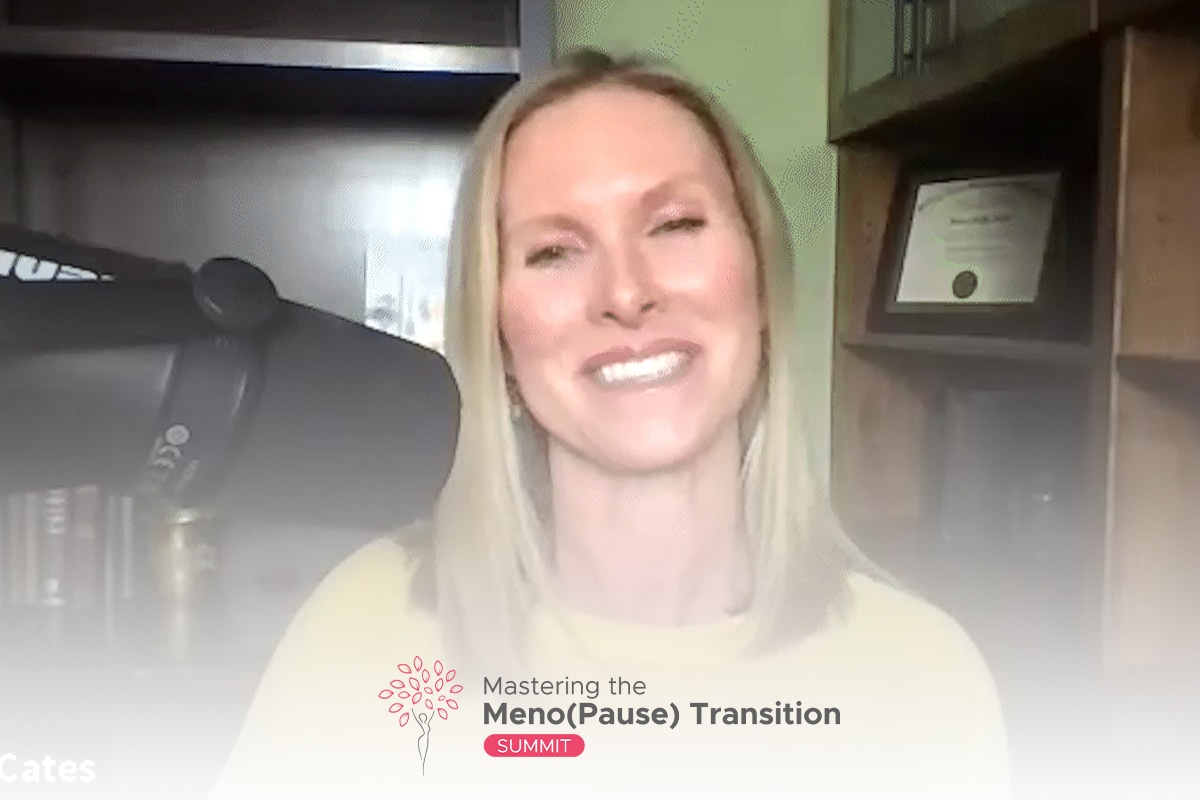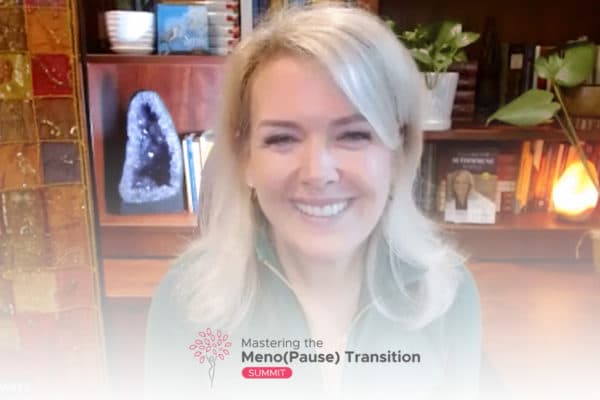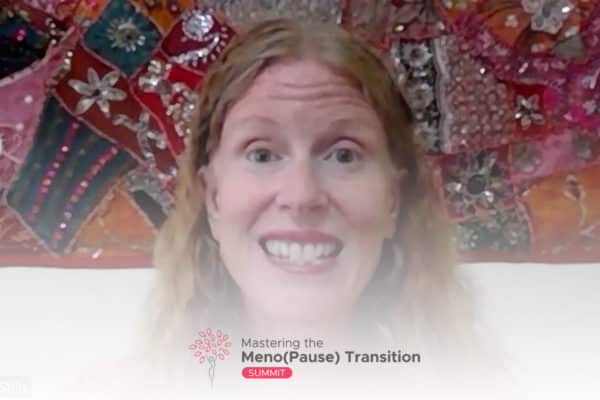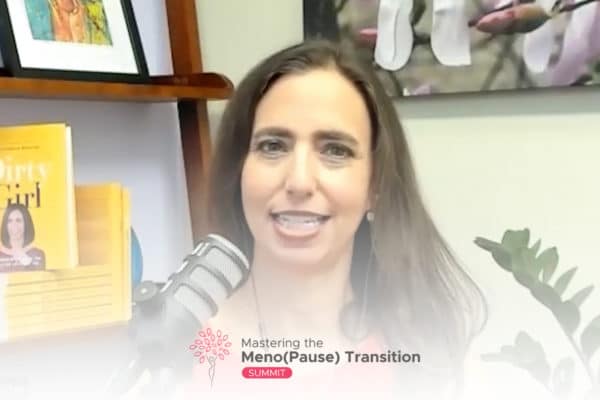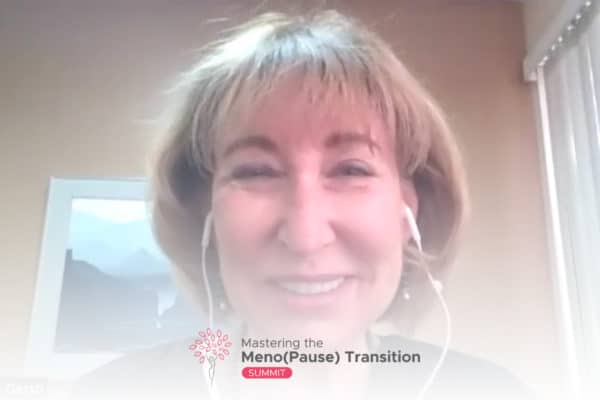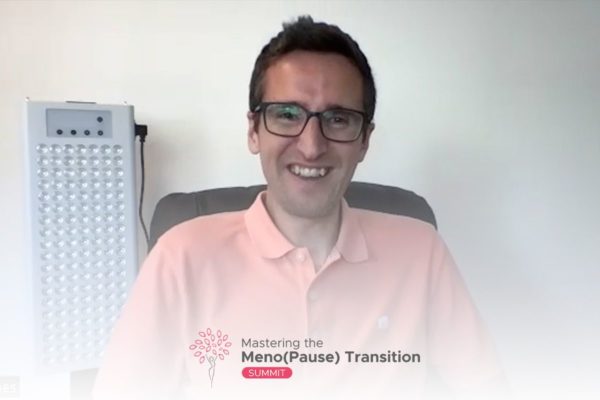Join the discussion below
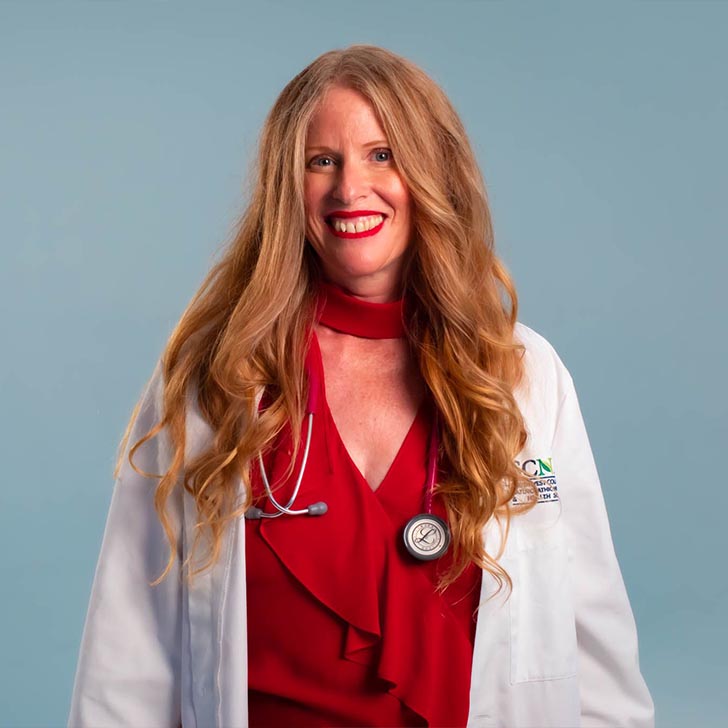
Dr. Sharon Stills, a licensed Naturopathic Medical Doctor with over two decades of dedicated service in transforming women’s health has been a guiding light for perimenopausal and menopausal women, empowering them to reinvent, explore, and rediscover their vitality and zest for life. Her pioneering RED Hot Sexy Meno(pause) Program encapsulates... Read More
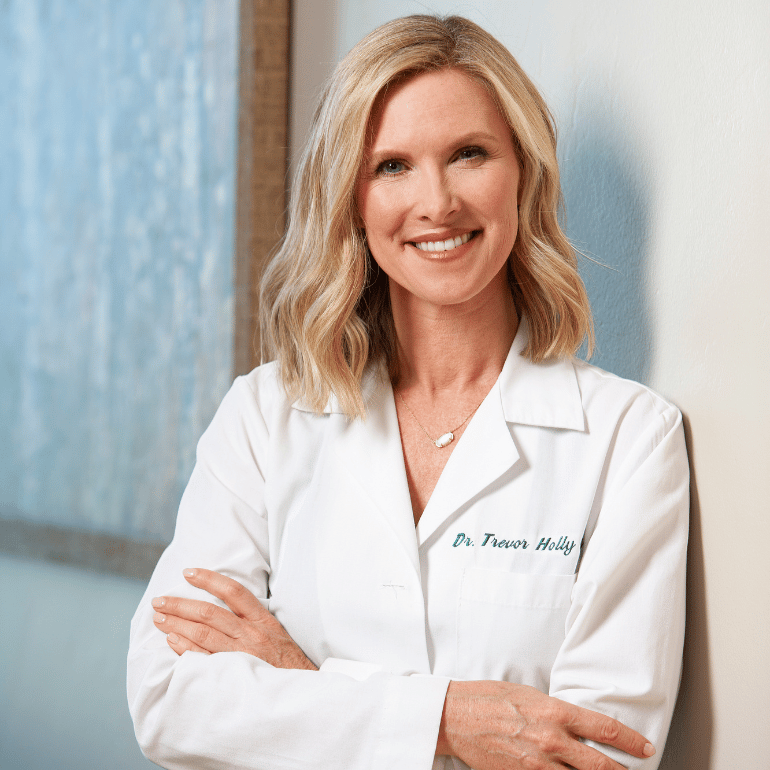
Dr. Trevor Cates is author of the USA Today bestselling book Clean Skin From Within and founder of The Spa Dr. natural skincare line. She was the first woman licensed as a naturopathic doctor in the state of California and was the doctor in several world-renown spas in Park City,... Read More
- How hormones impact skin
- How skincare products impact hormones
- The gut-skin-hormone connection
Related Topics
Gut-skin Connection, Hormone Health, Internal Health, Menopause, Skin Health, Womens HealthDr. Sharon Stills
Hi everyone, welcome back to Mastering the Menopause Transition summit. I am still your host, Dr. Sharon Stills, and excited as always to be here with you all. Every interview is so phenomenal, but this one is gonna be extra phenomenal, I have a very special guest with us, and we’re gonna be talking about all things skincare. We have The Spa Doctor in the house, which is amazing, she has a new book that just came out, so we’re gonna get to learn a little bit about that. And Dr. Trevor Cates is a naturopath, just like I am, she is a bestselling author already, this is not her first book that’s coming out. She’s been featured on TV shows, “The Doctors,” “Extra TV.” She was the host of the docuseries that I was a part of, “Hormones, Health, and Harmony,” hopefully you got to check that out, it was phenomenal. And so, she’s a wealth of knowledge, and we are very grateful and lucky to have her here today. So welcome to the summit.
Dr. Trevor Cates
Thank you, it’s great to be here with you.
Dr. Sharon Stills
Yeah, so The Spa Doctor, all things skin, and we all wanna have skin that looks like yours. So tell us, I know you’ve been practicing naturopathic medicine for as long as I have, and tell us how you got into it, and why and how skin became what you really dug down deep into and what you focused on.
Dr. Trevor Cates
Yeah, absolutely, it’s fun to turn the tables here, and I interviewed you for my “Hormone, Health and Harmony” docuseries, and now you’re interviewing me, and this is really fun. So yeah, absolutely, it started off, my journey started off when I was a kid, I had a lot of skin issues, I had eczema, mysterious bumps that would appear, a lot of rashes, a very sensitive skin, very itchy all the time. And so, I had a lot of allergies, and my skin was telling me all about it, all the time. And so, it was not only physically uncomfortable, but it was embarrassing too, because when we have issues, especially if anybody struggles with skin on their, especially on your face, it can be really debilitating, and very embarrassing. So my parents took me to see a lot of different practitioners, a lot of different types of doctors, and I was given a lot of different medications, that I would either have adverse reactions to, or allergic reactions to. And I just kept feeling worse, because of the side effects of all the, antihistamines, and then develop allergies to certain antibiotics, or different things. And thankfully, my parents didn’t give up, they kept searching for answers, and that’s what led them to find a holistic practitioner.
And it was the one thing that turned my health around, really my life around, because my skin issues cleared up, I felt physically better, I didn’t feel like I was in a fog anymore, and I also started to get a little bit more, I felt like a normal kid, I started to get some self-confidence back. But I remember really clearly thinking, why did I have to go through all of this to find an integrative or holistic approach? Why didn’t all these other doctors tell us about this early on so I could have avoided a lot of suffering? And it planted a seed in my head really early, at an early age, and it’s eventually what led me to become a naturopathic physician. And so grateful that I found naturopathic medicine, and the path, and it’s been a very rewarding career. And it was really about 10 years ago, I’ve been in practice for 22 years, and about 10 years ago, I was practicing in the Waldorf Astoria spa, and was leading people through a weight loss program. And at the end of the weight loss program, they would say, “Dr. Kate, lost weight, I feel great, but what surprises me is my skin, I didn’t know my skin could look this good.” So skin issues were clearing up, but also they just noticed more of a vibrancy, more of a glow, a healthier look, even a more youthful look about their skin.
And so, I realized that even though I had grown up with this path of understanding that skin is an outer reflection of our overall health, that a lot of people don’t realize the connection, they don’t think about the connection, because they go see their conventional dermatologist, and they’re given a topical steroid, or they’re given something else to just suppress it, or they go see an aesthetician, it’s like, well here, try this cream, or, you need to use this type of makeup, or, let’s cover it up. Whereas, I’ve realized from a young age, and what led me to naturopathic medical school is we’ve got to look at our skin differently, that it is an outer reflection of our health, it’s our largest organ, being right on the surface of our bodies, it gives us great clues about our overall health. And the root causes that are related to this is what we really need to go after, because when we address the root causes of our skin issues, we can address the root causes of so many other things. When we talk about nutritional deficiencies, inflammation, gut issues, hormonal imbalances, a lot of that is, we balance those, we help our skin, and we help so many other health issues.
Dr. Sharon Stills
Hmm, love it. So speaking of the hormones and the gut, what is the connection? ‘Cause we hear that the gut is connected to the hormones and the skin, and that’s a reflection, but what does that really mean?
Dr. Trevor Cates
Yeah, well, we have have our gut microbiome, and it’s really important for, not only our digestion, but also for, we know there’s a gut-brain connection, there’s a gut-skin connection, there’s a connection with our hormones. And so, when we have these microorganisms that live in our gut and protect our gut, it helps us with our brain health, our hormones, our skin, all these different other aspects of our health. And when it gets outta balance, when we get dysbiosis, it can create a number of issues with our hormones, and with our skin. And our skin has its own microbiome, so it has its own different array of microorganisms that live on it and protect us. And I think the gut microbiomes are getting a lot of attention, but the skin microbiome, I don’t think people know as much about that, and that’s actually, really part of what I learned when I was writing my first book, “Clean Skin from Within,” I learned more and more about this connection with the skin microbiome, and all the things that impact our skin microbiome. And a lot of it starts from within, with our gut.
Dr. Sharon Stills
So the skin microbiome, what should we be doing to support it, and what are the things we’re doing that are harming it?
Dr. Trevor Cates
Yeah, so, when we look at our skin microbiome, because it’s on the outside of our body, a lot of times we are focused on putting things on the outside, but we also wanna do things from the inside. Really, the magical combination is doing both, what are we doing from the inside, and what are we doing on the outside. So mistakes have to do, let’s start with those first, get those out of the way, mistakes go back to your gut health, is your gut out of balance, because if your gut is not in a good place, your gut health, then that impacts your skin microbiome. And so, that’s one thing, also some of the other things, inflammation, nutritional deficiencies, addressing the root causes, we’ve got to do that, but some of the mistakes we make on the outside with our skin microbiome are the products that we use. And we live in a very germophobic society, right? We’re all into the big cleaners, and soaps that just scrub the heck out of our faces.
But so a lot of these cleansers actually strip our skin, and they disrupt the skin microbiome. And a lot of what is going on in our environment impacts our skin microbiome. So the products that we use, one of the biggest mistakes people make in their skincare routines is cleansing. And we want to cleanse our skin, that is important, but we don’t want to do it in a way that harms our skin microbiome. So what I mean by that is, you have all these great microorganisms that live on your skin, so if you’re using a lot of harsh, abrasive types of cleansing, or exfoliants, and they’re really rough, that actually can damage the skin microbiome. And then, if you’re also using harsh cleansers that have a high pH, or that have really foamy kinds of stripping actions, that also can disturb the pH of the skin that helps support the skin microbiome.
Dr. Sharon Stills
Is it okay to use exfoliants sometimes, or should we steer clear of them entirely?
Dr. Trevor Cates
Yeah, so what we should do, let’s say, ’cause on what we should do, is again, from the inside out, we wanna address root causes, on the outside, for certainly using cleansers, but using ones that have the right pH. So there actually are cleansers that are more oil-based that are better for our skin. And I know people with oilier skin get worried, they’re like, oh no, don’t don’t bring any oil near me. Well, you probably just haven’t used the right types of oils, ’cause plant-based oils in combination with other ingredients and the right pH of products, it could actually be balancing to your skin, and help support your skin with the balance of the oils. So using the right kind of cleanser, and then with exfoliation, like you’re asking about, absolutely, we can exfoliate, but we don’t wanna overdo it. So I don’t recommend the brushes, and then really harsh things. We have an exfoliant at The Spa Doctor, part of the reason why I created the skincare line really was because I couldn’t find anything to recommend to my patients.
And here I am at the Waldorf Astoria spa, and I’m telling them to use natural products, and they’re like, no, they don’t really smell good, they don’t really work, they don’t really like them. And so I’m like, hold on, I know we can do this right. And so, I went on a quest to go find a skincare line that was natural, clean, effective, and was still luxurious, and I couldn’t find one, so I decided to make my own. So we have a four-step skin care system, we also have an exfoliant. But what I learned about exfoliants is that most of them are too abrasive. So we actually use a cultured pearl, and grind it to the texture of fine sand. And then there’s rose petals, and plant-based oils, and all kinds of yummy stuff in there, and so when you use that, and you don’t have to use a lot of pressure, a lot of times people are just trying to get in there and they’re really exfoliating, you actually can disrupt your skin microbiome, and you can impact the collagen of your skin too, over time.
Dr. Sharon Stills
So, I have a bunch of questions. So I wanna know your, ’cause I was like, do I have to go throw out my exfoliant when we get off of this? But I wanna know about your skin care line, so you said you have a four-step, can you take us through the four steps and what they are? ‘Cause I was gonna ask you, what do you do? What’s Dr. Trevor’s skincare regime? ‘Cause we wanna have glowing skin like you.
Dr. Trevor Cates
Thank you. So the four-step skincare system is a cleanser, an antioxidant serum, a light moisturizer, and a plant-based oil blend, so there are four steps. And I wanted to keep it simple, first of all, I don’t like an overly complicated skincare system. I know that some people, some women really love all their products, but I wanted to keep it simple. And because I think they’re in the skincare space, we could over-complicate things, we can have a cream for this, and a cream for that, and a toner, and a this and a that, and all these kinds of things, and it doesn’t have to be that complicated. And so the cleanser that I use is an oil-based cleanser, and it has a mild acidity to it. So the research shows that our skin does best with mild acidity, and that if we use products with a pH over 5.5, it actually can be damaging to our skin, to our skin microbiome, and create more issues, premature aging, breakouts, a number of things.
So that’s what helps support the skin microbiome, is that mild acidity of the skin. And so, having a full system that does that. So then, if you use a good cleanser, you actually don’t need a toner. A lot of women will use a toner because the pH of their cleanser is so high the toner brings the pH back. Or, their cleanser isn’t fully getting all their makeup or whatever off, so then they use a toner to remove whatever is still, the residual. So if you have a good cleanser, you don’t need a toner, that’s my feeling. So then we have an antioxidant serum, which with serums, the way they’re made, they’re designed to soak up into the skin really easily, and that’s when you can get all the great antioxidants in your skin. Again, making sure that it’s in the mild acidity, so 4.6 to 5 pH is what I like to see for face products. And again, most products are over 5.5. You can use a pH strip, just test your products. So, that’s an easy thing to do. And then, step three, again, is our moisturizer, a light moisturizer, because we also have step four, our glow boost, which is a plant-based oil blend, that way you can blend it in, you can mix those two together, you can make it as light or as heavy as you want, but they’re so packed full of antioxidant-rich, plant-based oils, like sea buckthorn fruit oil, and apricot kernel oil, and pomegranate seed oil, raspberry seed oil, these really great plant-based oils that are rich in antioxidants, and these omegas that our skin needs.
Dr. Sharon Stills
Ooh, I’m like, sign me up. You’re like, it’s simple, I, for the longest time, never put anything on my face, and then I turned 50 and I thought, oh, I probably should start doing something, so now I’m into powders and potions. But I never thought to, I love that, I’m gonna take a pH and check it, ’cause all we hear about is, oh, alkaline, alkaline, alkaline, but there are certain areas, like our stomach and our vagina, and now you’re hearing our skin, that actually, acidity is the way to go.
Dr. Trevor Cates
Right. And one caveat on that, is that if a product is %100 oil, you can’t test the pH on it. So just reminder on that, if you you’re using a face oil, you’re not gonna be able to check the pH on that, but all your other products should have mild acidity.
Dr. Sharon Stills
So collagen, you brought up collagen, and that’s such a big topic, so what do you recommend for women to improve their collagen and reduce wrinkles and that kind of stuff?
Dr. Trevor Cates
Yes, absolutely, yeah. Collagen is so important because it gives our skin that texture, that firmness, that we have in youth, and it starts to decline, unfortunately, as we age. But the other things that break it down faster also speed up the aging process in other ways, like oxidative damage, is one of the biggest aging accelerators. Also, blood sugar, so we wanna be mindful of glycation. And so, we wanna avoid eating a lot of foods that cause our blood sugar to spike, because when our blood sugar increases, we have a lot of increase in blood sugar, it creates these glycation issues in the body, and that means that glucose will bind to proteins in the body, and in the case of skin, we’re talking about collagen.
And so, glucose will bind to collagen and make it rigid, less elastic, so that leads to more of that sagging skin, wrinkles, and that collagen breakdown. So we want to really be mindful of what we’re eating, what we’re putting in our bodies, and instead doing things that are rich in antioxidants, because antioxidants will help protect against that oxidative damage that’s occurring. So we wanna do things that support our natural collagen production, we wanna do things that prevent oxidative damage. And then on the outside, we wanna think about what we’re doing as well. So using some sun protection is important, because that also will break down collagen. And then also think about the toxins on the outside, what are you getting internally, and then what are you getting externally, and what can you do to kind of protect your face and your skin, and using antioxidants in products is very helpful. I also think that getting certain nutrients that you’re eating, getting lots of vitamin C, because we need vitamin C for our own collagen production. And it’s also an antioxidant, so that’s great. And then also some people will like to take a collagen peptide supplement. I think that can be great for people who want that additional support. Or also, you can get things like gelatin, or bone broth, that are food sources of collagen.
Dr. Sharon Stills
So you mentioned sun protection, and that’s, I’m like, all right, I have the skin expert here, I’m gonna ask her all the skin questions, I’m writing down a list. So what are your views on the sun, and is any sun okay? Are you always wearing sunscreen, and what kind of sunscreen, ’cause I know there’s a lot of toxic ones out there, is there a good one you recommend?
Dr. Trevor Cates
Yeah, absolutely. It’s a really important question, because the sun is actually good for us, we need sunshine, it helps us with our vitamin D levels. So when the sun hits our skin, that’s what helps with our vitamin D levels, and vitamin D is a pro hormone, it helps us with our other hormones, there’s so many benefits of vitamin D for our bodies, and it does help with our skin too. And so, we do want some sun exposure, but I like to think of it as, where are you getting the most amount of sun, and really focus on that, and when are you getting the most amount of sun. So depending upon, it also varies depending on where you live, and your skin tone, and kind of your lifestyle. So factors like, so for me, I’m fair-skinned, you and I are fair-skinned, so we don’t need as much sun exposure to get vitamin D. But for someone who has more pigment in their skin, they’re gonna need more sun exposure to get their vitamin D levels. But we’re all susceptible to damage from the sun’s rays, and increasing our risk for premature aging, and also for skin cancer, so we all wanna be mindful of that.
And then also, depending upon where you live, so I live in Park City, Utah, we’re really close to the sun, so we need to be really particularly careful at high altitude of wearing a lot of sun protection. But someone that lives closer to sea level, may not have to have to worry quite as much about that. Also the time of year, is it spring and summer when the sun is closer to us, those are times that we wanna be particularly careful too, we also tend to be outside more. And the areas where we get the most amount of sun exposure year round are our face, our neck, and the tops of our hands. And remember, when you get UV exposure, there are different types, and UVA can still go through glass, so when you’re driving your car, it can still, the UVA rays, which are actually the most related to aging, UVA, aging, remember that way, and so you’re getting a lot of these rays through the window. So I think it’s actually a pretty good idea to wear sunscreen, especially on your face, your neck and the tops of your hands. Now, we can still get some unexposed skin to get our vitamin D on our arms and our legs.
And we can also go get our vitamin D levels tested, so we can know if we need a little extra sunlight, or we wanna take a supplement, depending upon what our levels show for us. So when it comes to protection, what I tell people is, wear hats, wear clothing, that’s actually gonna be the best thing, and then thinking about when you’re going in the sun. So, trying to avoid the middle of the day when the sun is the strongest, trying to do, if you’re gonna plan something outdoors, try and do it in the morning, or later in the day, that’s kind of what I try to do, in Park City. But just sometimes it doesn’t always work that way, or the only time is to go out in the middle of the day, because there’s a break in the clouds and you wanna get out there. So wear your hat, wear your sunglasses, wear coverups, and then use a sunscreen that is zinc oxide based, that is much better than the chemical sunscreen.
So the chemical sunscreens, what happens? You put them on, they create a chemical reaction in your skin, where some of these zinc oxide, or mineral-based sunscreens will actually create more of a block on the skin, it’s a little bit of a different kind of reaction. So we want to use zinc oxide because I think gives us better protection, also, the chemical sunscreens are known to contain different endocrine-disrupting chemicals. So ingredients like oxybenzone is a known endocrine-disrupting chemical, I talk a lot about this in the docuseries, I talk a lot about this, people are like, why did you go from skin to hormones? This is one of the reasons, is because a lot of the things that are in our environment are endocrine-disrupting chemicals, including a lot of skincare ingredients. So what happens is when we’re exposed to these ingredients, these endocrine disruptors, they bind to hormone receptors, they can mimic hormones, they just basically alter the way that hormones function in our body. So endocrine-disrupting chemicals have been linked to infertility, they’ve been linked to breast cancer, prostate cancer, or thyroid disease, a number of different hormonal issues, really. And I think probably, a big part of the reason why some women have a harder time going through menopause, because of all this exposure to endocrine disrupting chemicals. So we wanna reduce our exposure to those, and sunscreen is one of those places, just swap it out, just use, instead of a chemical sunscreen, use a zinc oxide based one.
Dr. Sharon Stills
Yeah, we can do so much when we just clean up our external environment, and the things that we can, we can’t control what’s in the environment and being sprayed, but we can control what we’re putting on our bodies. So skincare, a lot of women think of skincare, and they think of facials, and fillers, and Botox, and I’m just curious what your opinion is on those type of things.
Dr. Trevor Cates
Yeah, I mean, I think everything is a very personal decision. My personal choice is not to do any Botox or fillers. And I’m 49, and it’s certainly been, there have been times in my life like, oh, maybe I could do a little of this or that, and at this point in my life, I’m like, you know what, I actually like some of the wrinkles, I like the little crows feet around my eyes, they actually make me look like I have eyelashes or something, I mean, and I’ve just gotten kind of used to them. And I really do think of wrinkles as something that we’ve been working hard for, we’ve been living and laughing, so I don’t have a problem with wrinkles, but I know not everybody feels that way. And we certainly, we want to maintain our youth the best we can, I think graceful aging is a much better term than anti-aging, I much prefer graceful aging. And so, we don’t wanna look older than we are, because that actually can be a sign that something’s out of balance in the body. And so, if we’re aging faster than other people our age, we wanna take a closer look at that, why is that happening?
And there might be that collagen breakdown, oxidative damage, those are oftentimes, or hormonal imbalances that are creeping up on you, and it’s like, okay, pay attention to that. But when it comes to things like Botox and fillers, I think for women, if they choose to do that, you wanna be mindful, you wanna really think about, where is this coming from? So Botox, it comes from botulinum, which is a neurotoxin. Why are we injecting this in our bodies? I’m really not sure. But at least if you’re like, okay, I know it’s a neurotoxin, and I still wanna do it, okay, at least you know where it comes from. But I think it’s important to educate ourselves, and I think oftentimes we just blindly make decisions based upon what media says, what good marketing does, or what other people are doing, that maybe haven’t done the research. So just being aware of what these things are, and when it comes to fillers, and all of these things, when you’re injecting things, there’s a lot of things that can go wrong. So if you are gonna go to someone, make sure you go to someone really, really good, do your homework. With fillers, if you’re going to do them, do them minimally, because they can create scar tissue, and they can create problems down the road, so just keep that in mind. But again, everything is a personal choice, I just think everyone needs to make an educated decision.
Dr. Sharon Stills
Right, yeah, I agree. I don’t recommend Botox or things like that to my patients, but I do have compassion for women who are not feeling good about themselves when they look in the mirror, and sometimes an outer fix can be part of the solution. But I also think there’s other natural things, maybe PRP facials, or mesotherapy, or things that aren’t as well known, that can be good options. But like you said, it’s really about looking at what’s going on inside, and also what you’re applying outside. So you have a new book that just released, congratulations to you.
Dr. Trevor Cates
Thank you, thank you. Yeah, it’s “Natural Beauty Reset,” and it’s about harmonizing hormones and restoring radiance. And so, what I found is that, one of the things that’s really important that we lose track of, is the changes with the seasons, and that with the four particular areas, food, movement, mindset, and skincare, that our needs change with each season. And part of it is what helps us with balancing our hormones, because our hormones change, actually, change throughout the day, throughout the month, throughout our lives, and then also throughout the seasons.
And so, there are things that we can do to kind of reconnect with our rhythms, natural rhythms, and that includes with the seasons. So that’s what the “Natural Beauty Reset”‘s about, it’s about the four different seasons, food, movement, mindset, skincare, for each season. And just to give skincare as an example, it’s very different in the summer, when the weather’s starting to get warmer, when we’re perspiring more, and what we need to do for our skincare routines, or when we tend to get more sun exposure, like we just talked about, and what parts of our body are exposed, but really a lot of this has to do with, where is the sun in relationship to us at different times of the year, ’cause that affects our sleep, it affects our mood, it affects our hormones. So, we need to make adjustments.
Dr. Sharon Stills
Oh, I love that, I’m so passionate about being in tune with the seasons and being connected to the internal rhythms, but the external rhythms. So, ooh, I can’t wait to read a copy.
Dr. Trevor Cates
Yeah.
Dr. Sharon Stills
Fantastic. Any other last minute pearls of wisdom you wanna share with the listeners?
Dr. Trevor Cates
Yeah, I think what’s really important is to try and find your root cause, and remember that your skin is giving you signals about that. So, trying to figure out, do you have hormonal imbalances, is your skin trying to tell you that? Oxidative damage, is that one of the things that’s going on with you? Inflammation, gut issues, and blood sugar imbalances, these are some of the things that can really trigger skin problems, and that when you restore those, you can restore your skin, and you can restore your overall health. And then that makes transitions of life a lot easier too, when we are addressing all of these things, it helps our skin, it helps so much in our lives that make it easier for us to transition.
Dr. Sharon Stills
Mm, I love that, and I love the emphasis on, it’s internal and external, ’cause with a lot of health issues, we’re really just talking about internal, and with our skin, it is something that we see, it’s something we present, it does build self-esteem when you look in the mirror and you feel good about yourself and how your skin looks, and it’s definitely a reflection of your overall health. And so, not just going to a dermatologist and getting something to suppress it, but really holistically addressing your whole life, and your skin is gonna balance out from that.
Dr. Trevor Cates
Yeah, and what you put on your skin does get absorbed too, so paying attention to what you put on your skin, because I think a lot of times we’ve just mindlessly put products on without really thinking about it. So I encourage people, and the next time you get ready to put something on your skin, do do this task, say, “Would I put in my mouth?” And then, if your answer is no, which probably it will be, then turn it over, look at the ingredients, and start to get familiar with some of the ingredients. So things like oxybenzone, one of the endocrine disruptors, cutting that out. Synthetic fragrance, parabens, these are things that, these ingredients, they do get absorbed, and studies do show that these show up in human samples. Diethyl phthalate is in fragrance, that shows up in a lot of urine samples, parabens show up in breast tumor tissue, and oxybenzone, a lot of these things, they were showing up in human samples.
And so, we know that they don’t just sit on the surface of our skin, in fact, we use hormone creams on our skin because we know they’re gonna get absorbed, right? So what else is getting absorbed with your hormone creams? That’s another one, that a lot of women are using them, and they’re getting ’em over the counter, or they’re going and buying them places. Take a look at those too, what ingredients are in there. If you work with a compounding pharmacy, then they can help make sure that you have natural ingredients. And it’s been really interesting, I’m sure you do a lot with hormone creams, and I have over the years as well, that different people react differently to skincare products, and when it comes to biomedical hormones, you might need to change the base of that. So, choosing natural.
Dr. Sharon Stills
So we have enough right up to that point, and that is such a good point, because I initially, automatically assumed I’m using a natural compounding pharmacy for my hormone creams, they’re gonna be natural, and then when I got a look at the ingredients that the base was, I was like, oh my God, I had a heart attack. And so, I had to go in, speak to my pharmacist and compound out pure, clean bases, and I think a lot of women are not getting pure, clean bases, even though they’re getting bioidentical hormones, so that is an excellent point, thank you for bringing that up. So if you’re on hormone creams, you wanna ask your prescriber to get you a ingredient list, because they, like me many years ago, may also be surprised and may realize they have to re-compound how they’re doing it, and different bases, there are different ways to do it naturally, but you wanna make sure it’s natural. And the other thing you said is just, I was envisioning, ’cause we don’t, we think of what we eat as really affecting us, but if we just consider all these little mouths on our arms that our skin is just eating everything up as well, and I think if you hold that visual, you’ll stop and think before you just slather things on. So, real good one. And for everyone who wants to know more about you, where can they find you, and do you have a free gift for the ladies?
Dr. Trevor Cates
Yeah, so people can find out about me at thespadoctor.com, so it’s T-H-E-S-P-A-D-R.com, so doctor is abbreviated. So thespadr.com, we’re also all over social media, just as thespadr. Don’t forget, it’s abbreviated, D-R. I also would suggest people take the skin quiz, they can go to theskinquiz.com, find out what your skin personality type out, and help you figure out about your root causes. And then my free gift is a self-care survival kit, so we’ve got some goodies in there for you, ’cause self care is so important. And as women, we need to do more of it, because if we take care of ourselves, we can do all the things that we do for other people even better.
Dr. Sharon Stills
Mm, thank you, thank you. Well, I’m gonna go take my skin quiz. What was that website again? The skin?
Dr. Trevor Cates
Theskinquiz.com.
Dr. Sharon Stills
And just so many congratulations on your book, your new book coming out, I can’t wait to read it, and for all the amazing work you do and put out in the world and all the effort that went into your docuseries, and we were talking about this when you were interviewing me earlier, but how this really has the potential in sharing this knowledge to really change the world, to change women’s health, change their impact, so thank you for all that you do.
Dr. Trevor Cates
Thank you, Sharon, for doing this summit.
Dr. Sharon Stills
Yeah, well we just gotta keep getting the information out there, because it’s not that women are stupid, ’cause we’re not, it’s just that sometimes we don’t know, we haven’t heard the right information, and so this is all just about sharing information so women hear, oh wow, there’s other ways to handle skin issues, not just taking that corticosteroid cream that my allergist gave me, or my dermatologist gave me. So, we do it, like you do, just for the passion to share with everyone. So thank you for being here, thank you everyone for being here, and I look forward to being with you in the next interview. Until then, be well, take care, bye bye.
Downloads

